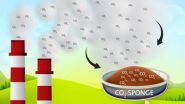(Press-News.org) Researchers at University of California, San Diego School of Medicine have identified the mechanism by which a rare, inherited neurodegenerative disease causes often crippling muscle weakness in men, in addition to reduced fertility.
The study, published August 10 in the journal Nature Neuroscience, shows that a gene mutation long recognized as a key to the development of Kennedy's disease impairs the body's ability to degrade, remove and recycle clumps of "trash" proteins that may otherwise build up on neurons, progressively impairing their ability to control muscle contraction. This mechanism, called autophagy, is akin to a garbage disposal system and is the only way for the body to purge itself of non-working, misshapen trash proteins.
"We've known since the mid-1990s that Alzheimer's disease, Parkinson's disease and Huntington's disease are caused by the accumulation of misfolded proteins that should have been degraded, but cannot be turned over," said senior author Albert La Spada, MD, PhD and professor of pediatrics, cellular and molecular medicine, and neurosciences. "The value of this study is that it identifies a target for halting the progression of protein build-up, not just in this rare disease, but in many other diseases that are associated with impaired autophagy pathway function."
Of the 400 to 500 men in the U.S. with Kennedy's disease, the slow but progressive loss of motor function results in about 15 to 20 percent of those with the disease becoming wheel-chair bound during later stages of the disease.
Kennedy's disease, also known as spinal and bulbar muscular atrophy, is a recessive X-linked disease men inherit from their mother. Women don't get the disease because they have two copies of the X chromosome. The genetic abnormality causes men to produce a mutant androgen receptor protein, which impairs the body's sensitivity and response to male sex hormones, sometimes resulting in testicular atrophy and enlargement of male breasts.
In experiments with mice, scientists discovered that the mutant androgen receptor protein besides disrupting male reproductive biology also deactivates a protein called transcription factor EB (TFEB) that is believed to be a master regulator of autophagy in nerve and other cell types.
Specifically, the mutant androgen receptor protein in Kennedy's disease binds to TFEB and blocks its ability to mediate the break-down and removal of non-working proteins and aggregated proteins.
"Our study tells us that if we can find a way to keep TFEB working, we likely can prevent this disease and others like it from progressing," La Spada said. "We now have a target for new therapies to treat not only Kennedy's disease, but also many more common neurological disorders."
INFORMATION:
Co-authors include Constanza J. Cortes, Helen C Miranda, Harald Frankowski, Yakup Batlevi, Jessica E. Young, Amy Le and Cassiano Carromeu, UC San Diego; Nishi Ivanov, Bryce L. Sopher and Gwenn A. Garden, University of Washington; and Alysson R. Muotri, UC San Diego and Rady Children's Hospital-San Diego.
Funding for this study was provided by the National Institutes of Health (R01 NS041648, R01 AG033082 and DP2-OD006495-01), Muscular Dystrophy Association and the California Institute for Regenerative Medicine.
Target identified for rare inherited neurological disease in men
Scientists show bad androgen receptor impairs body's ability to dispose of damaged cells
2014-08-10
ELSE PRESS RELEASES FROM THIS DATE:
The grass really is greener on TV and computer screens, thanks to quantum dots
2014-08-10
SAN FRANCISCO, Aug. 10, 2014 — High-tech specks called quantum dots could bring brighter, more vibrant color to mass market TVs, tablets, phones and other displays. Today, a scientist will describe a new technology called 3M quantum dot enhancement film (QDEF) that efficiently makes liquid crystal display (LCD) screens more richly colored.
His talk will be one of nearly 12,000 presentations at the 248th National Meeting & Exposition of the American Chemical Society (ACS), the world's largest scientific society, taking place here through Thursday.
"Green grass just pops ...
Pregnant women and fetuses exposed to antibacterial compounds face potential health risks
2014-08-10
SAN FRANCISCO, Aug. 10, 2014 — As the Food and Drug Administration (FDA) mulls over whether to rein in the use of common antibacterial compounds that are causing growing concern among environmental health experts, scientists are reporting today that many pregnant women and their fetuses are being exposed to these substances. They will present their work at the 248th National Meeting & Exposition of the American Chemical Society (ACS), the world's largest scientific society.
The meeting, which takes place here through Thursday, features nearly 12,000 presentations on a ...
Wine symposium explores everything you wanted to know about the mighty grape (video)
2014-08-10
San Francisco, Aug. 10, 2014 — Location. Location. Location. The popular real estate mantra also
turns out to be equally important for growing wine grapes in fields and storing bottles of the beverage at home or in restaurants, according to researchers.
Those are just two of the topics that will be covered in a symposium titled, "Advances in Wine Research," that will run today through Tuesday at the 248th National Meeting & Exposition of the American Chemical Society (ACS). The meeting features nearly 12,000 reports. A brand-new ACS video on the topics is available ...
Carbon dioxide 'sponge' could ease transition to cleaner energy
2014-08-10
SAN FRANCISCO, Aug. 10, 2014 — A sponge-like plastic that sops up the greenhouse gas carbon dioxide (CO2) might ease our transition away from polluting fossil fuels and toward new energy sources, such as hydrogen. The material — a relative of the plastics used in food containers — could play a role in President Obama's plan to cut CO2 emissions 30 percent by 2030, and could also be integrated into power plant smokestacks in the future.
The report on the material is one of nearly 12,000 presentations at the 248th National Meeting & Exposition of the American Chemical Society ...
On the frontiers of cyborg science
2014-08-10
SAN FRANCISCO, Aug. 10, 2014 — No longer just fantastical fodder for sci-fi buffs, cyborg technology is bringing us tangible progress toward real-life electronic skin, prosthetics and ultraflexible circuits. Now taking this human-machine concept to an unprecedented level, pioneering scientists are working on the seamless marriage between electronics and brain signaling with the potential to transform our understanding of how the brain works — and how to treat its most devastating diseases.
Their presentation is taking place at the 248th National Meeting & Exposition of ...
Like cling wrap, new biomaterial can coat tricky burn wounds and block out infection
2014-08-10
SAN FRANCISCO, Aug. 10, 2014 — Wrapping wound dressings around fingers and toes can be tricky, but for burn victims, guarding them against infection is critical. Today, scientists are reporting the development of novel, ultrathin coatings called nanosheets that can cling to the body's most difficult-to-protect contours and keep bacteria at bay.
The researchers are speaking about their materials, which they've tested on mice, at the 248th National Meeting & Exposition of the American Chemical Society (ACS), the world's largest scientific society.
The meeting features ...
Women who 'lean in' often soon leave engineering careers, study finds
2014-08-09
WASHINGTON –- Nearly 40 percent of women who earn engineering degrees quit the profession or never enter the field, and for those who leave, poor workplace climates and mistreatment by managers and co-workers are common reasons, according to research presented at the American Psychological Association's 122nd Annual Convention.
While women accounted for more than 20 percent of engineering school graduates over the past two decades, only 11 percent of practicing engineers are women, and only 9 percent of electronic and environmental engineers are, said Nadya Fouad, PhD, ...
Happier consumers can lead to healthier environment, research reveals
2014-08-09
WASHINGTON -- The pursuit of true happiness can lead people to lifestyles that will not only be satisfying but will be better for the environment, according to an overview of psychological research presented at the American Psychological Association's 122nd Annual Convention.
"For decades, consumerism has been on a collision course with the environment, with consumer appetites draining the planet of natural resources and accelerating global warming. One view is that we need to change consumption in order to save the planet," said Miriam Tatzel, PhD, of Empire State College. ...
Trauma before enlistment linked to high suicide rates among military personnel, veterans
2014-08-09
WASHINGTON -- High rates of suicide among military service members and veterans may be related to traumatic experiences they had before enlisting, making them more vulnerable to suicidal behavior when coping with combat and multiple deployments, according to the findings of several recent studies presented at the American Psychological Association's 122nd Annual Convention.
Experiencing child abuse, being sexually victimized by someone not in the service and exhibiting suicidal behavior before enlisting are significant risk factors for service members and veterans who ...
Regular marijuana use bad for teens' brains
2014-08-09
WASHINGTON –- Frequent marijuana use can have a significant negative effect on the brains of teenagers and young adults, including cognitive decline, poor attention and memory, and decreased IQ, according to psychologists discussing public health implications of marijuana legalization at the American Psychological Association's 122nd Annual Convention.
"It needs to be emphasized that regular cannabis use, which we consider once a week, is not safe and may result in addiction and neurocognitive damage, especially in youth," said Krista Lisdahl, PhD, director of the brain ...
LAST 30 PRESS RELEASES:
Jeonbuk National University researchers explore metal oxide electrodes as a new frontier in electrochemical microplastic detection
Cannabis: What is the profile of adults at low risk of dependence?
Medical and materials innovations of two women engineers recognized by Sony and Nature
Blood test “clocks” predict when Alzheimer’s symptoms will start
Second pregnancy uniquely alters the female brain
Study shows low-field MRI is feasible for breast screening
Nanodevice produces continuous electricity from evaporation
Call me invasive: New evidence confirms the status of the giant Asian mantis in Europe
Scientists discover a key mechanism regulating how oxytocin is released in the mouse brain
Public and patient involvement in research is a balancing act of power
Scientists discover “bacterial constipation,” a new disease caused by gut-drying bacteria
DGIST identifies “magic blueprint” for converting carbon dioxide into resources through atom-level catalyst design
COVID-19 vaccination during pregnancy may help prevent preeclampsia
Menopausal hormone therapy not linked to increased risk of death
Chronic shortage of family doctors in England, reveals BMJ analysis
Booster jabs reduce the risks of COVID-19 deaths, study finds
Screening increases survival rate for stage IV breast cancer by 60%
ACC announces inaugural fellow for the Thad and Gerry Waites Rural Cardiovascular Research Fellowship
University of Oklahoma researchers develop durable hybrid materials for faster radiation detection
Medicaid disenrollment spikes at age 19, study finds
Turning agricultural waste into advanced materials: Review highlights how torrefaction could power a sustainable carbon future
New study warns emerging pollutants in livestock and aquaculture waste may threaten ecosystems and public health
Integrated rice–aquatic farming systems may hold the key to smarter nitrogen use and lower agricultural emissions
Hope for global banana farming in genetic discovery
Mirror image pheromones help beetles swipe right
Prenatal lead exposure related to worse cognitive function in adults
Research alert: Understanding substance use across the full spectrum of sexual identity
Pekingese, Shih Tzu and Staffordshire Bull Terrier among twelve dog breeds at risk of serious breathing condition
Selected dog breeds with most breathing trouble identified in new study
Interplay of class and gender may influence social judgments differently between cultures
[Press-News.org] Target identified for rare inherited neurological disease in menScientists show bad androgen receptor impairs body's ability to dispose of damaged cells



